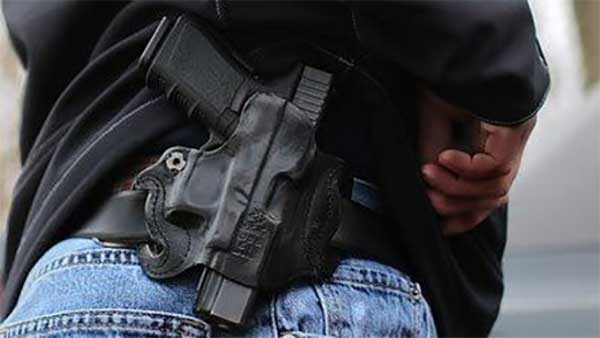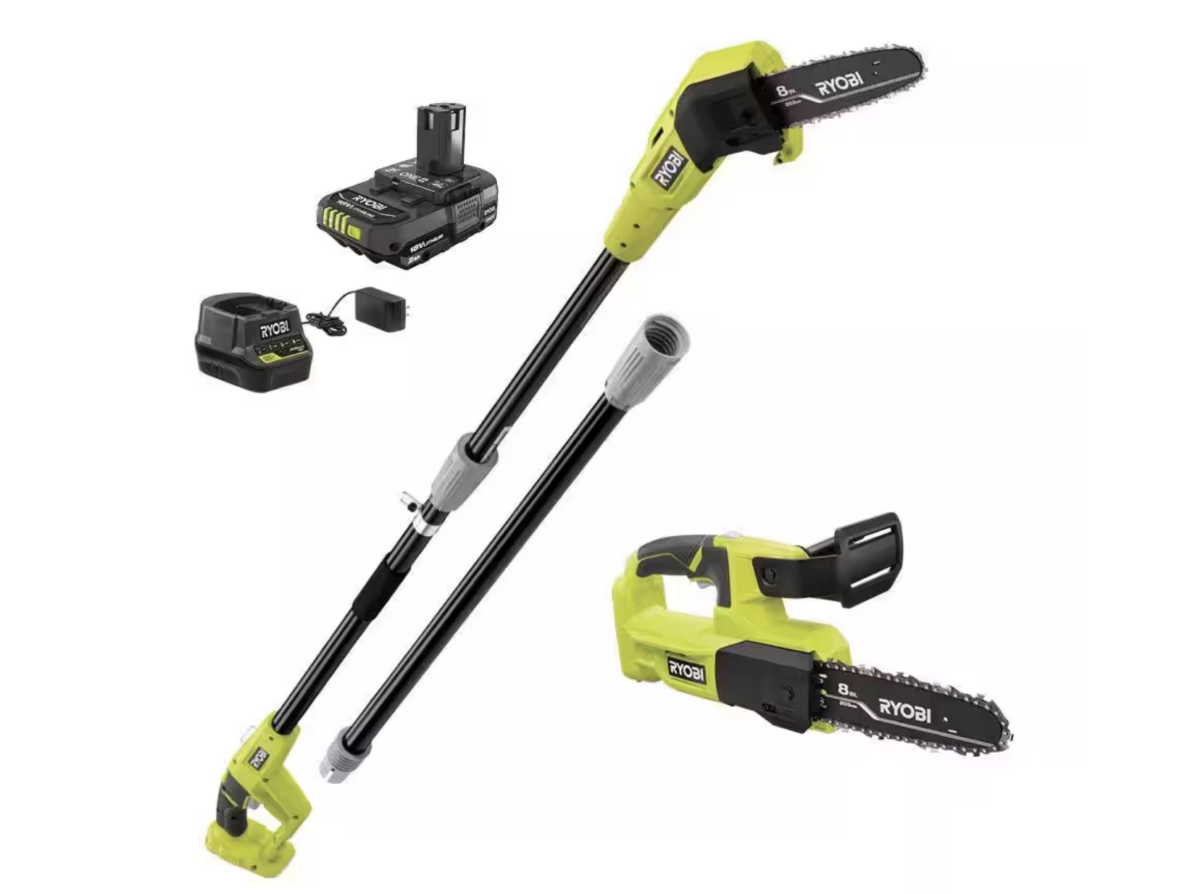Downsizing and selling a few guns? Perhaps you are selling a few of your early budget guns to afford the dream gun you’ve always wanted. What about selling off a gun collection of a family member who has passed? Perhaps that person had a substantial collection, over 100 guns and you are going to have to put some time into cataloging and listing them for sale… Will the ATF’s new rule (definition change) make you a dealer? Will that earn you that dreaded knock on the door as the sun breaks the horizon? All I can say is “Hide the dog…”
What if you are a person of a few means and looking for the perfect handgun for concealed carry. You buy your first choice, but quickly realize it is too big. You sell it a couple weeks later and return to buy your second choice. A week later, you realize it is too small, too heavy, sharp edges etc., so you sell it, peruse your favorite website, and order the next candidate. Would this make you a gun dealer according to the ATF? Read on and find out.

ATF Rule 2022R-17
Summary
The Department of Justice (“Department”) proposes amending Bureau of Alcohol, Tobacco, Firearms, and Explosives (“ATF”) regulations to implement the provisions of the Bipartisan Safer Communities Act (“BSCA”), effective June 25, 2022, that broaden the definition of when a person is considered “engaged in the business” as a dealer in firearms other than a gunsmith or pawnbroker. This proposed rule incorporates the BSCA’s definition of “predominantly earn a profit,” creates a stand-alone definition of “terrorism,” and amends the definitions of “principal objective of livelihood and profit” and “engaged in the business” to ensure each conforms with the BSCA’s statutory changes and can be relied upon by the public.
The proposed rule also clarifies what it means for a person to be “engaged in the business” of dealing in firearms, and to have the intent to “predominantly earn a profit” from the sale or disposition of firearms. In addition, it clarifies the term “dealer,” including how that term applies to auctioneers, and defines the term “responsible person.” These proposed changes would assist persons in understanding when they are required to have a license to deal in firearms.
Consistent with the Gun Control Act (“GCA”) and existing regulations, the proposed rule also defines the term “personal collection” to clarify when persons are not “engaged in the business” because they make only occasional sales to enhance a personal collection, or for a hobby, or if the firearms they sell are all or part of a personal collection.
This proposed rule further addresses the lawful ways in which former licensees, and responsible persons acting on behalf of such licensees, may liquidate business inventory upon revocation or other termination of their license. Finally, the proposed rule clarifies that a licensee transferring a firearm to another licensee must do so by following the verification and recordkeeping procedures instead of using a Firearms Transaction Record, ATF Form 4473.
The final version of ATF Rule 2022R-17 has been submitted to the Federal Register and goes into effect 30 days after the date of publication. ATF Rule 2022R-17 broadens the definition of who is “engaged in the business” as a dealer in firearms and finalizes many amendments to regulatory definitions.
A person will be considered to be “engaged in the business” as a dealer in firearms, when that person:

The Rule finalizes the amendment to the regulatory definition of “Dealer” to clarify that firearms dealing may occur wherever, or through whatever medium, qualifying domestic or international activities are conducted.
The Rule also “finalizes an amendment to the regulatory definition of “engaged in the business” to define the terms “purchase” and “sale” as they apply to dealers to include any method of payment or medium of exchange for a firearm, including services or illicit forms of payment (e.g., controlled substances). “Resale” is defined to mean “selling a firearm, including a stolen firearm, after it was previously sold by the original manufacturer or any other person.””
Providing services is considered a medium of exchange, so the ATF has codified its “historical exclusion for auctioneers who provide only auction services on commission to assist in liquidating firearms at an ‘estate-type’ auction.”
The ruling states that a “licensee transferring a firearm to another licensee, must do so by following the verification and recordkeeping procedures in the regulations, rather than by using a Firearms Transaction Record, ATF Form 4473.”
“The final rule recognizes that individuals who purchase firearms for the enhancement of a personal collection or a legitimate hobby are permitted by the GCA to occasionally buy and sell firearms for those purposes, or occasionally resell to a licensee or to a family member for lawful purposes, without the need to obtain a license.”
Without an FFL, an individual must ensure they are not “engaged in the business” and the transaction is not “to predominantly earn a profit”, which now focuses only on whether the intent of the underlying sale or disposition of the firearms is predominantly of the obtaining pecuniary gain. Individuals may continue to engage in private intrastate sales, without a license, provided the individuals are not “engaged in the business” and the transaction is otherwise compliance with the law.
Q&A From the ATF
Q. Why does the Final rule change the definition of a “dealer”?
A. The Gun Control Act was passed in 1968, and the Firearms Owners’ Protection Act modified it in 1986. Since then, there have been significant advancements in manufacturing (e.g., 3D printing) and distribution technology (e.g., Internet), and changes in the marketplace and products (e.g., large-scale gun shows). These have increased the ways in which individuals shop for firearms and have therefore created a need for more clarity in the regulatory definition of “dealer” in the diverse modern marketplace, especially with the BSCA amendments to what constitutes being “engaged in the business” as a dealer. The final rule amended the definition of “dealer” to clarify that, under the changes to “engaged in the business” made by the BSCA, a person still meets the statutory definition of a dealer in firearms in the modern marketplace, regardless of where they buy and sell firearms, regardless of which medium they use to do so, and regardless of which medium of payment or exchange they use.
Q. Is the term “occasional” defined in the BSCA or the final rule when addressing sales, exchanges, or purchases of firearms?
A. No. The term “occasional” is not defined in the regulatory text; however, the plain and ordinary meaning of that term is “infrequent or irregular occurrence.” However, regular or routine sales, exchanges, or purchases of firearms (even part-time) for the enhancement of a personal collection or for a hobby would not fall within the meaning of that term.
Q. If I only dedicate a few hours to selling firearms to predominantly earn a profit, am I considered a “dealer”?
A. Yes. The term includes any person who engages in such business or occupation on a parttime basis.
Q. Does the final rule require every private sale of a firearm be processed through a licensed dealer?
A. No. Individuals may continue to make intrastate private sales without a license provided they do not rise to the level of being “engaged in the business,” and the transactions are otherwise compliant with law.
Q. If a person sells their personal firearm and makes a profit, does that equate to being engaged in the business as a dealer requiring a license?
A. No. A person actually “selling at a profit does not equate to engaging in the business” because a showing of actual profit, whether expenses or inflation are considered, is not required to be engaged in the business. Rather, it is the predominant intent of obtaining pecuniary gain from sale or disposition of firearms that matters. See 18 U.S.C. § 921(a)(22). Moreover, because the person’s predominant intent to profit is the relevant fact, it does not matter how or whether actual profit is calculated.
Conclusion
The main takeaway for most who are not ‘engaged in the business’ is to change the way we do things. No longer would a private party transfer offer a bill of sale — whether you are going through a FFL to do the 4473 transfer. Instead, use a bill of transfer sans a purchase amount. Don’t mention or admit to buying a gun as an investment. Don’t buy a gun at a show with the intention of ‘flipping’ it?

Instead of creating a new law that must go through the legislative process, the ATF has once again taken the strategy of ‘redefining’ an existing law to clarify (change) it. Remember, the ATF took one page from the Safer Communities Act and added over 100 pages of its own commentary to ‘explain’ it with ATF Rule 2022R-17… And that’s never good for you, me, or the Second Amendment… In my opinion, of course.
What do you think of the ATF’s new Rule (ATF Rule 2022R-17)? Will it make our streets safer as the ATF and anti-gunners would have you believe? Or, is the new Rule nothing more than another step toward making law abiding gun owners into criminals? Share your answers in the Comment section.





